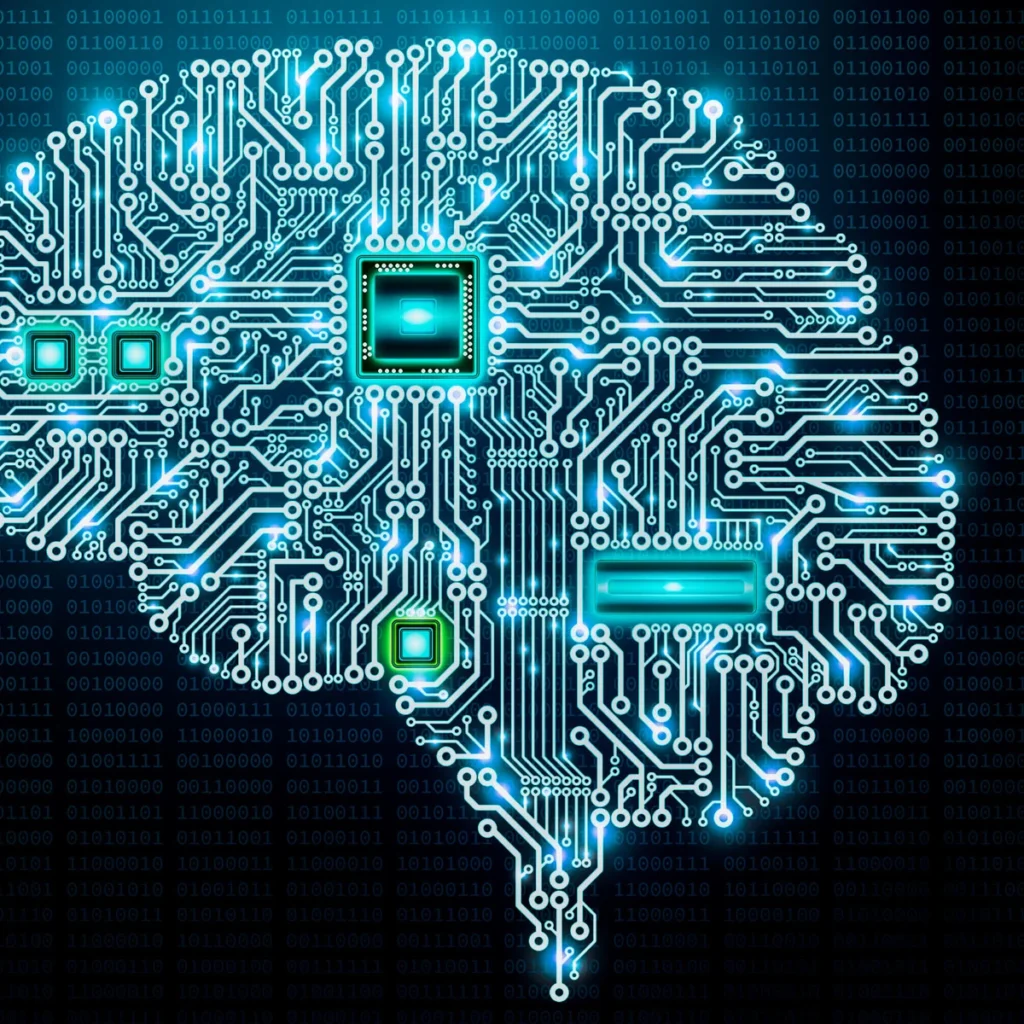As artificial intelligence (AI) advances faster than most policies meant to govern it, a serious question looms: could AI create a permanent underclass — a group of people forever left behind in the labour market, whose jobs are irreversibly displaced by machines and algorithms?
Increasingly, experts warn that the job displacement we expect in the coming years may not just be a temporary buzz. It could usher in structural changes in how economists, employers, and workers understand work itself. The typical narrative—that old jobs vanish but new ones rise to take their place—is being challenged. For many, especially in developing economies, automation might not bring enough new opportunities, or might bring them too slowly, to stop a widening gulf of inequality.
In Nigeria, where large segments of the workforce are already vulnerable, underemployment is high, informal work dominates, and institutional safety nets are thin, the idea of a permanent underclass strikes close to home. If artificial intelligence replaces routine tasks and even some non-routine jobs without commensurate policy response, millions could risk being stuck in low pay, irregular work, or worse, no work at all.

Table of Contents
What Experts Are Saying
Well-known authorities—AI scientists, economists, ethicists—are voicing concern. Geoffrey Hinton, often called the “godfather of artificial intelligence,” has warned that artificial intelligence may lead to massive unemployment while piling up profits for a tiny elite. He points out that jobs involving repetitive tasks—clerical work, simple customer service, routine manufacturing—are among the most exposed, according to The Times of India.
Others add that even professions we thought fairly safe could be disrupted. Creative work, technical writing, and legal research—places where human insight matters—may not be immune. The worry is not simply job loss; it’s unequal displacement. Some will have access to retraining, education, or capital to shift into emerging fields. Others won’t. And for those left behind, the risk is that “permanent” in “permanent underclass” stops being rhetorical.
The debate also touches upon capitalism itself. Some argue that the system rewards profit over people, meaning the economic incentives will push businesses to automate as much as possible and redistribute as little as possible. Unless policies are put in place to share gains through minimum income schemes, universal basic income (UBI), stronger welfare, and land labour law reform, then inequality may widen.
Hinton, for instance, has expressed scepticism about UBI solving all problems, arguing that human dignity is tied to meaningful work.
Possible Policy Responses & Risks
If the risk of a permanent underclass is real, what can governments, companies, and civil society do? There are several levers—and several pitfalls.
- Retraining and lifelong learning
Governments and the private sector must invest in education and skills training, especially for those most at risk: workers in repetitive industries, low-income, or with limited access to technology. The transition from old jobs to new ones must be made real, not just promised. - Social safety nets and income support
Programs like unemployment insurance, universal basic income, or even guaranteed minimum wages will need serious attention. For these to work, they should not just meet minimal subsistence but allow dignity, making sure people aren’t trapped in poverty or degrading conditions. - Regulation, taxation and redistribution
Policymakers can use tax policy, corporate regulation, and social investment to ensure that gains from AI—efficiency, productivity, profits—don’t all flow to a small ownership class. For example, levying taxes on automation, or on companies that heavily automate labour without rehiring or investing back in human capital. - Equitable access to technology and infrastructure
The digital divide matters. If only some people can access artificial intelligence tools, high-speed internet, training, and capital, many more will be left behind. In Nigeria, unequal access to electricity, the internet, and quality education may magnify the risk. - Preserving dignity and purpose in changing work
This is harder to legislate, but critical: work provides more than income. It gives structure, identity, and community. Policies must consider how displaced workers can find purpose, either in new types of work or even in non-work activities (volunteering, community engagement, civic roles). Reskilling is important; psychosocial support and inclusion matter too.
However, there are risks in overreaction or wrong policy choices:
- Retraining programs may be poorly targeted, out of date, or too slow.
- Income support that is too low, or that disincentivises work without creating alternatives, may fail.
- Regulation and taxation that are too heavy or misstructured may stifle innovation or push companies to relocate offshore.
- Without good governance, corruption or elite capture may lead to policies that benefit the few rather than many.

What It Means for Nigeria & the Global South
For countries like Nigeria, with large informal economies, high youth unemployment, and vulnerable social welfare systems, the danger is more acute. Here are what the stakes are, and what might help.
First, many people already work informally—selling goods, doing small-scale services, working in agriculture, etc. AI’s disruptive effects are already felt: chatbots, automation of some services, and remote AI-driven work globally. But formal safety nets rarely reach informal workers. If disruption accelerates, it could entrench inequality.
Second, education systems in many parts of Nigeria are underfunded, unequal, and often don’t match market needs. Bridging the gap between what schools teach and what AI-era industries demand is urgent. That might mean partnerships with tech firms, vocational training, digital literacy programs, and remote learning innovations.
Third, infrastructure (internet access, reliable electricity, data access) remains a barrier. Without basic infrastructure, even well-designed interventions may fail.
Fourth, policy coherence is a challenge. Federal, state and local governments need to align macroeconomic policy, education, labour laws, and social welfare to handle AI disruption. That requires political will, financing, and good governance.
Finally, there is an opportunity. Nigeria can leapfrog in some sectors. With many young people, digital natives, if access and inclusion are improved, sectors like tech services, digital content creation, artificial intelligence aiding agriculture, health, finance, and logistics could grow, creating new work that did not exist before.
Hope, Agency and Moving Forward
Is a permanent underclass inevitable? Not necessarily. What matters is the collective choices we make now—policy, investment, social values. Here are directions toward building a more equitable AI future.
- Inclusive policy design: Let those most at risk have a seat at the table—in policy consultations, in designing training programmes. Don’t assume top-down solutions will work for all communities.
- Public-private partnerships: Business, educational institutions, NGOs, and governments working together can mobilise resources, share risks, and scale programmes faster.
- Flexible regulation that protects without stifling: Laws that encourage fairness (for example, transparency in artificial intelligence systems, rights for displaced workers) while still allowing innovation.
- Promoting new work paradigms: As artificial intelligence changes work, alternative models (gig economy, cooperative firms, creative industries, remote and hybrid work) could provide more diverse paths.
- Cultural shift about value and dignity: We must rethink work not just as wage-earning but as contribution: caring, creative, civic engagement all matter. Societies that valorise only high-earning jobs risk marginalising those who do essential but less market-valued work.

In Nigeria, especially, citizens can push for better policies, demand that the government recognises AI’s promise and threat, advocate for infrastructure, and support local innovation. Youth and community groups have agency; local tech innovators, universities, and civil society can be partners in shaping the future.

Conclusion
The debate over whether AI will create a permanent underclass is no longer just theoretical. For many around the world—especially in developing nations—it may already be underway. But it does not have to be the outcome. With wise policy, equitable access, investment in people, and the cultivation of dignity in all forms of work, AI’s benefits can be shared rather than hoarded. The question now is not whether AI will change work — it will — but whether societies allow that change to deepen inequality, or use it to build something more just.
Join Our Social Media Channels:
WhatsApp: NaijaEyes
Facebook: NaijaEyes
Twitter: NaijaEyes
Instagram: NaijaEyes
TikTok: NaijaEyes














![Mr Macaroni Drops Blistering Remark: ‘APC Filled with Most Corrupt People’ as He Slams Tinubu’s Controversial Pardon for Criminals=]] Mr Macaroni](https://naijaeyesblog.com/wp-content/uploads/2025/03/Mr-Macaroni-1-1-180x135.avif)

![Chaos Erupts in Abuja Hotel as BBNaija Star Phyna Sparks Fierce Scene Over Alleged N200,000 Dispute [VIDEO] Phyna](https://naijaeyesblog.com/wp-content/uploads/2024/11/A-Picture-of-Phyna-BBNaija-180x135.jpg)























